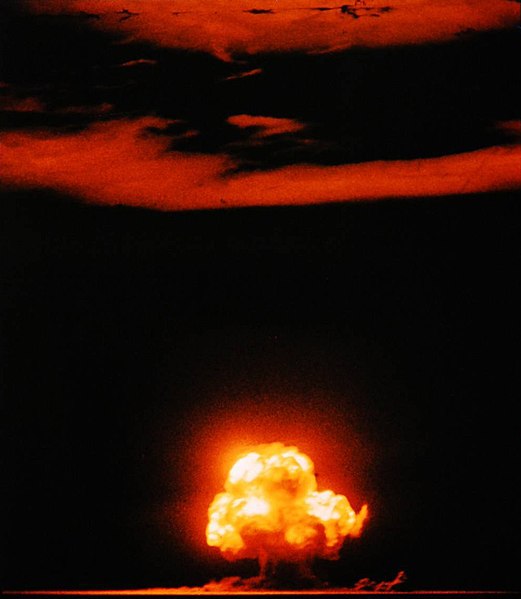Nuclear ethics is a cross-disciplinary field of academic and policy-relevant study in which the problems associated with nuclear warfare, nuclear deterrence, nuclear arms control, nuclear disarmament, or nuclear energy are examined through one or more ethical or moral theories or frameworks. In contemporary security studies, the problems of nuclear warfare, deterrence, proliferation, and so forth are often understood strictly in political, strategic, or military terms. In the study of international organizations and law, however, these problems are also understood in legal terms. Nuclear ethics assumes that the very real possibilities of human extinction, mass human destruction, or mass environmental damage which could result from nuclear warfare are deep ethical or moral problems. Specifically, it assumes that the outcomes of human extinction, mass human destruction, or environmental damage count as moral evils. Another area of inquiry concerns future generations and the burden that nuclear waste and pollution imposes on them. Some scholars have concluded that it is therefore morally wrong to act in ways that produce these outcomes, which means it is morally wrong to engage in nuclear warfare.

Trinity shot color
Moab uranium mill tailings pile
Castle Bravo Blast
VOA Herman – 13 April 2011 Fukushima Nuclear Power Plant-04
Deterrence theory refers to the scholarship and practice of how threats of using force by one party can convince another party to refrain from initiating some other course of action. The topic gained increased prominence as a military strategy during the Cold War with regard to the use of nuclear weapons and is related to but distinct from the concept of mutual assured destruction, according to which a full-scale nuclear attack on a power with second-strike capability would devastate both parties. The central problem of deterrence revolves around how to credibly threaten military action or nuclear punishment on the adversary despite its costs to the deterrer. Deterrence in an international relations context is the application of deterrence theory to avoid conflict.

USS Growler, one of two submarines designed to provide a nuclear deterrence using cruise missiles with a 500-mile (800 km) range—placed on patrol by starting to carry the Regulus I missile (shown at Pier 86 in New York, its home as a museum ship)





